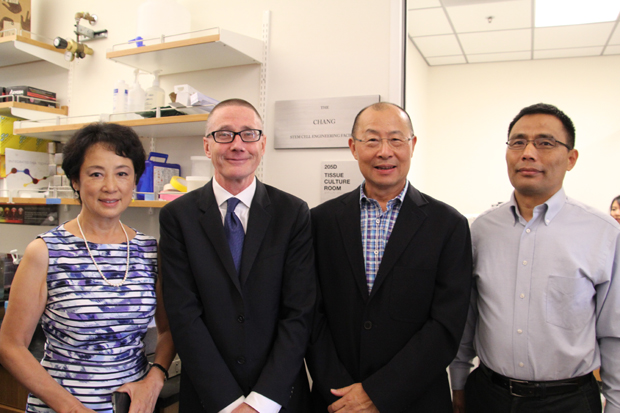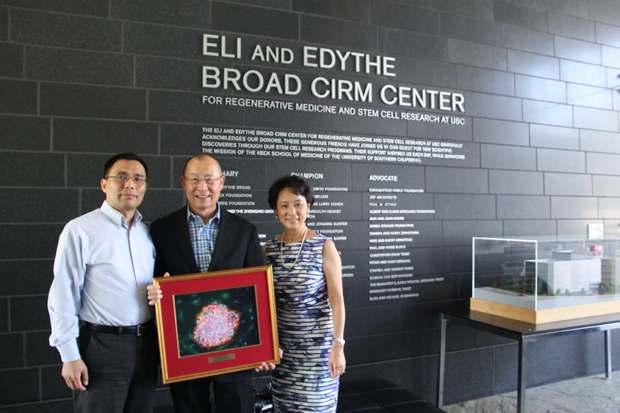Once the stuff of science fiction, genetic engineering is now offered on a fee-for-service basis at USC.
On Sept. 19, USC Stem Cell faculty and staff welcomed their supporters, the Chang and Choi families, and nearly 100 of their friends to celebrate the grand opening of the Chang Stem Cell Engineering Facility, which is situated on the second floor of the Eli and Edythe Broad Center for Regenerative Medicine and Stem Cell Research at USC. Established with a generous gift from the Chang family, the stem cell engineering facility will serve researchers at USC as well as at other institutions.
“My hope for this facility is to change people’s lives and make people live longer and better,” said alumnus Daniel Chang, who gave the gift with his wife Cai Li, son Jorlly, and daughter and USC freshman Carrisa. “USC is our first stop in searching for the American dream. At USC, not only did I learn a lot, but I also started to get to know America and met my mentor for life, Dr. Ferdinand A. Kröger, a professor at the USC Viterbi School of Engineering. Because of his influence, I became the founder of a science and technology enterprise.”
The new facility genetically modifies embryonic stem cells and induced pluripotent stem cells, which can be derived and propagated by the existing CIRM Stem Cell Core Facility, also located at USC’s stem cell research center. The genetically modified stem cells derived from human patients or animals provide an opportunity to investigate the mechanisms of disease and to develop new treatments.
With these genetic modifications, investigators can expose some of the cells to thousands of potential drugs at the existing Choi Family Therapeutic Screening Facility across the hall.
Andy McMahon, PhD, director of USC’s stem cell research center, said, “This is a unique pipeline that no other institution has, and it will provide the technical support to enable scientists at USC and beyond to take their pluripotent stem cell research to the next level — creating sophisticated disease models and ultimately developing translational therapies.”
Qi-Long Ying, PhD, director of the Chang Stem Cell Engineering Facility and associate professor of stem cell biology and regenerative medicine, and cell and neurobiology at the Keck School of Medicine of USC, added: “By combining the power of genome editing and stem cell technology, this new facility provides a versatile and efficient stem cell engineering platform to help investigators from USC and beyond create disease models in a dish and develop new treatments.”
— Cristy Lytal

From left, Cai Li Chang; Andy McMahon, director of the Eli and Edythe Broad Center for Regenerative Medicine and Stem Cell Research at USC; Daniel Chang, and Qi-Long Ying, director of the Chang Stem Cell Engineering Facility.


